|
We are in a different era right now, and it's palpable. Some of us, the metaphorical canaries in the coal mines, have been feeling it for decades. Others are just beginning to sense it. But one thing is for sure: as Galadriel says in the opening of the Fellowship of the Ring, "The world has changed. I feel it in the water. I feel it in the earth. I smell it in the air." Pluto, the planet of transformation, has moved into Aquarius, the sign of sudden changes, innovative ideas, and breaking free from conventions. It's a forward-thinking energy, not one rooted in the past. So why does it feel like everything is going backwards? I want to believe that what we are witnessing now is the phenomenon my therapist calls an "extinction burst" in personal transformation: when an old habit makes a dramatic comeback just before it leaves us for good. Perhaps what we are seeing is the last cry of an outworn system struggling to stay alive - just before we evolve past it and let it go, and welcome a long-needed feminine energy into our economic structures. One thing has become clear: a masculine-dominated paradigm is not sustainable--not for humanity, not for the Earth. Over the past 16 years since the financial crisis of 2009, Pluto has been in Capricorn - the sign of tradition, of structure, of big business, power, and order. And while Capricorn, like all signs, holds both light and shadow, what we've seen is a doubling down on outdated norms: traditions long out of balance with nature, with far too much emphasis on domination, war, short-term profits, and zero-sum games - and not enough on nurturance, collaboration, long-term sustainability, and win-win solutions. We officially left Capricorn and entered Aquarius on November 19, 2024, and wow, what a whirlwind of change and upheaval it's been. The old school masculine "tough guy" energy that many of us thought was a thing of the past, seems to be clawing desperately to stay relevant and in power. I'd call it pathetic if it weren't putting biodiversity, ecosystems, and entire species at risk. That's how badly Sauron didn't want to give up power. But within this darkness is the seed of its own destruction and the catalyst for a long-overdue transformation in our thinking, our emotions, our economic models, our communities, and our work. I believe that for us to move forward, the feminine must take center stage in the stewardship of the Earth. We need her community-oriented intuition and wisdom to guide us towards sustainable ways of being that honor life. The masculine still matters greatly - he plays a pivotal role as a Protector of the feminine, uplifting her so she can do her sacred work of creating and sustaining life. But he will no longer lead. We tried that. It didn't work. This is a vision that can become reality - but it's not inevitable. Remember Frodo in the dark night of the soul, standing at the Mirror of Galadriel in Lothlórien? She showed him, not a fixed fate, but what could come to pass if he failed in his mission: the enslavement of all of Middle Earth by Sauron. It is not about shifting power from one hand to another. No one could wield the Ring to rule them all, not even Gandalf, not even Galadriel. Frodo was merely the Ring Bearer, and even he barely survived the journey. The Ring must be destroyed - so we can enter a new age led by the nurturing feminine. Our fate is not sealed, and no matter where we end up, the road ahead will be rocky and likely require us to do things we haven't done before. We must hold on tight, practice radical self-compassion, and move forward with eyes and hearts wide open. Now is not the time to look away. An extreme imbalanced masculine energy is still desperately trying to fix everything on its own, but it cannot succeed without the feminine. It doesn't carry the life-bearing wisdom needed to heal and grow. Stay vigilant, stay strong, stay steadfast.
0 Comments
I have been keeping people updated on the project mostly over kickstarter these days, and less via blog and email. I thought I would share some of the pictures of the printing process and final printing. I am so glad I went with the local printer here in Culver City as the colors turned out so vibrant. Just a few more decks to mail out.
This morning I received an email from The Atlantic about David Brooks' article on what's wrong with the Ivy League. The article itself, "How Ivy League Broke America: the meritocracy isn't working, we need something new", I have yet to read. But the email alone from the author sparked a new philosophical musing. Since the email is distinct from the first two article paragraphs non-subscribers can read for free at The Atlantic, I'm pasting the text of the email below as context for the blog article that follows. "Dear Reader,
The diploma divide is driving American politics. Donald Trump surged back into power with the support of millions of high-school-educated voters who are furious at the college-educated elite. But the diploma divide isn’t only a political divide. It’s a social divide. High-school-educated people die eight years younger than college-educated people, on average. They are much more likely to perish from opioid addiction, to have children out of wedlock, to be obese, to say they have no close friends. The academic-performance gap between kids who come from affluent families and those who come from less affluent families is greater than the academic gap between white and Black students in the age of Jim Crow. There is a chasm dividing American society, and it is defined primarily by education levels. For the past year, I’ve tried to understand this chasm—where it came from, and what can be done to close it. I learned that this chasm didn’t just happen. It was created. A group of well-meaning college administrators decided, in the middle of the 20th century, that they would segregate America by intelligence. They defined intelligence in a very specific and narrow way: the ability to perform well in academic settings and standardized testing. Students who had these skills were admitted into elite universities and then funneled into jobs at the commanding heights of society—in finance, law, government, and media, and atop large corporations. They married other people with these skills, invested massively in their children, who then went off to the same elite universities, and presto—you’ve got an inherited caste system. Is today’s leadership class governing well? No. Is today’s leadership class trusted and respected by a wide swath of Americans? No. Has today’s leadership class used the system to lock in its privileges? Yes. The meritocracy needs to be transformed from top to bottom. In my new cover story for The Atlantic, I describe what a more humane, just, and democratic meritocracy could look like. Regardless of how you feel about the outcome of the presidential election, the problem is not just Donald Trump. It’s the way we as a society sort people, putting some on the escalator to affluence and tossing others out. In my essay, I try to imagine a better world. If you would like to support stories like this—ones that not only examine how we got here but also envision where we could go next—I encourage you to subscribe to The Atlantic. Thank you. David Brooks Contributing Writer" Recently I went through a phase where many things in my life changed at the same time. Many things left and many things came in. And because the original catalyst left my nervous system in a state of unprecedented shock, the multi-month process was excruciating. But this is usually the case with big change, isn't it? We don't usually consciously go out and try to upheave our lives; something from outside usually pushes us and it feels uncomfortable, and it's in the discomfort that we change and grow. Coming out the other side, things have started to calm down a little, and this week while journalling I took stock over the gains - the things I moved towards or came to me; and the losses - the things I moved away from or left me. They fell into two main categories.
Writing down and analyzing these changes was an instinctual way to process the experience, to find meaning, to find the silver linings that would show that the experience was "worth it," that it was all for some greater good. And there are certainly areas where things trended upwards - the people and communities I surround myself with overall are more empowering. But I also have some people I moved away from that I want to bring back into my life. There are some new daily habits, such as a wealth mindset practice, Eckhart Tolle meditations, and journalling much more through out the day, that I plan to keep. But I also lost my regular yoga and strength training habits, and started drinking wine weekly, rather than once or twice a year. It's hard to say if there is a net win yet. But the question is, does there have to be? Does it have to make sense or add up for it to be OK? I do believe, as humans, we are always on the path of growing and evolving. But where are we going? And who said things are always supposed to become "better" overall, and what does "better" even mean? The only certainty really is change, and the next step in an evolutionary journey may not feel good at all. Does it have to make sense or add up for it to be OK? Yes, we can look back and choose to see the silver linings, and tell the story of our ultimate success and progression. But they are always just stories. There's no equation we can find that will add it all up and show us some objective truth about a net gain or loss, unless we are going simply by our bank account. We are living life. Life is messy. We try to learn. We try to bring with us wisdom from the experiences we have, especially the painful ones. But in the end, we all wind up having to let go of everything. In the end, you could say, we lose it all. At least that's what I've learned listening to Eckhart Tolle for weeks on end. There is no perfect way life is supposed to be. There's no deal with God that life will be wonderful if only we do all the right things. It's a learning ground and there are no guarantees. The only control we really have is in how present we are to each moment, and how we respond. And you could argue even the degree of control we have is a function of our wired-in nervous systems that develop in infancy, and though maleable, take a lot of work to change. I used to measure my progress in life by how much peace I experienced through out the week. And that is certainly not a bad metric. But what if I stopped measuring at all? What if I stopped trying to find the silver linings, make it make sense, or tell a story of some heroic victory I think I need to have in order to feel good about myself and life? What if I stopped trying at all, and just dropped into now? And realized everything else is just a story, just a human-made illusion. A belated update for those not on my email list or following me on Kickstarter. The Drawn to Life Giving Card crowdfunding campaign was successful! I am now getting ready to send the files to the printer for the first set of test proofs. I can't wait to get them in my hands and share pictures of them. You can follow the journey on Kickstarter, and/or join my Drawn to Life email list to learn more.
While it's fresh and vivid, I want to share some inspirations coming up after listening to Eckhart Tolle videos nonstop over the past few weeks. For those not familiar with Eckhart, he is one of the modern teachers on presence and being in the now. Similar to the Buddhist tradition, he emphasizes how not identifying with thoughts is a key step to accessing present moment awareness, and insists that all of the joy we desire actually lives in that quiet space of possibility, which we can access once we learn to be still. One of the things that makes him so special is his meticulous choice of words that make what before sounded like esoteric wisdom, so accessible. My first introduction to Eckhart, his book A New Earth, taught me what 15 years of exposure to Buddhism had eluded me. It showed me definitively the arbitrary nature of ones thoughts. How they are like trains and you can decide whether you want to ride them. By the end of the book I could see that I didn't have to believe my thoughts, that my thoughts are not me. It finally got through. This was a powerful realization, but as I look back, I see how it was still a somewhat cognitive understanding. It was a piece of the puzzle, but there was much more. I knew who I wasn't (not my thoughts) but I still didn't know who I was, and therefore still identified with relatively superficial things, transitory things, even one's ability to empathize or be aware of thoughts, is still just a construct that defines and limits. I also inadvertently fell into the habit of using this understanding around having a choice to believe my thoughts, to spiritually bypass my negative feelings. I missed the part about needing to slow down enough to sit with ALL the feelings, not just the good ones. But I also understand why I did this. Because I needed someone to show me how to slow down through somatic therapy work. In this recent phase of rediscovering Eckhart Tolle, he's helped illuminate the answer to that second piece - if I am not my thoughts, then who am I? Who/where/what is this elusive self that we hear about again and again with different names - true/inner/higher self, Big I, awareness, being, presence, spirit, source, god, goddess, universal energy, etc? Through Eckhart's audio teachings it became possible to connect with it long enough to really take it in and feel it. Who am I? It's the stillness that exists in the space between the thoughts. It's where joy lives (and is always living there whether we are aware of it or not). This stillness is step zero for living more fully alive. It is where the ability to check in with inner knowing resides. It's what listening to the heart is all about. It’s where love is felt and grace blooms. It’s where unconditioned life begins. And it was this experience that finally convinced me once and for all that the most fulfilling productive thing I can do at any given moment is to become aware of the space between my thoughts. Because that's where the best most fulfilling possible feeling exists. That's where the true self exists. It's where the deeper wisdom about what the next inspired step to take resides. What's cool about this view is that it shifts the intention and attention for how we approach each moment, each situation, each challenge. The goal becomes simply to find the space between the thoughts; to focus on bringing awareness to that stillness. The question is no longer, How can I find the mental answer to what will heal the emptiness inside me? but rather, How can I sit quietly enough to visit the place between the thoughts that IS the emptiness, which is actually the love out of which the entire world of possibility is born? But then the question always comes back to: "OK, this all sounds good. But HOW do I slow down enough to feel the stillness?" Something really profound I learned in my recent studies on healing, is that for people who understand the importance of being in the present and are very aware and observant of life patterns, but cannot seem to slow down enough to access the stillness required to change the patterns, it needs to be made crystal clear - this is not your fault. Your nervous system, which includes millions of years of evolution, may simply have never learned how to do it at will. You may have few if any memories in your whole life of ever really feeling present, relaxed and safe. Why would you be able to suddenly will yourself to do something that you have no memory of having experienced, no reference point or baseline for? It's this slowing down piece that I've spent the past few years learning through somatic experiencing therapy. I needed someone to guide me through it regularly to train my mind and body on what being present in my body feels like and what it means to observe things as they arise, for that is the only way to heal and truly process difficult emotions and experiences. And over time it builds upon itself. The learning how to calm down and tune into the body works in a beneficial feedback loop with the mind, where the mind starts to slow down too, which further calms the body and so on. It's a process that gets easier with time, but also never ends. It's a daily continuous practice. And what I'm so grateful for is the now steadfast motivation to never give up on this, because I can see that what I really desire exists in the stillness between the thoughts. Right here. Right now. In light of my upcoming Giving Card crowdfunding project launch, I thought I would share a couple thoughts on capitalism, or more generally, the current economic model and structures for survival in this world, with which I've been struggling to wrap my mind around for as long as I can remember. As a child and young adult, I experienced a lot of distrust (to put it mildly) around the way traditional advertising and sales was done in media. It felt so full of lies I could hardly believe it was legal to say things like a product was the "best" at anything, or imply that someone will be happier if they just have the right shampoo. And while since then I've discovered many companies that succeed by word of mouth and honest marketing, something about the economic system itself, which lends itself to things like the ridiculous lack of transparency in social media and AI business models, just doesn't sit right with me. The way that pyramids always have to have so many people at the bottom. Is that the only shape? Is that the only way? Is it my imagination, or do things not seem to be getting better in terms of class disparity and the greater good of humanity under the current system, which seems to blatantly fail to prioritize the most valuable things we have: the earth and the children. At the same time, I also wonder how much of my disdain is just because I haven't learned how to create capital well myself? If I was closer to the top, would I be singing a different tune? I pray I would still be on a mission, not only to make positive change for those less fortunate, but actually help forge a path towards a new economic paradigm that lends itself to more humanity and honesty. The current economic model we operate in fails to prioritize the most valuable things we have: the earth and the children Today I am still wending my way through it all as an artist who aspires not just to survive but thrive in the existing system, and in a way that feels aligned, is in integrity with my values, and does the least amount of harm to the world. And perhaps most importantly, in a way that is transparent. While also trying to change the model itself in whatever way I can. It is with this awareness and from working with creative coaches on following the intuitive nudges towards what feels right (instead of the "shoulds") that I am going to be launching my the art I've been creating the past two years as a deck of Giving Cards, which combines my drawings with thoughtful insights on mindfulness and self worth. They are a twist on traditional affirmation decks, where the idea is to enjoy them for a while, but then give them away to others (whether in person, or leaving somewhere for someone to find) as a way to receive the affirmation that comes from connecting to and giving to others. I also hope they can help encourage more human interaction in this increasingly online world. Within the safe structure of a Kickstarter campaign, I am exploring ideas for how I might be able to operate a business that feels in line with my values. For example, the cards will be made from recycled sustainable material at California-based printer, and there will be reward options that include receiving a deck and donating a whole deck to communities in need. I will also be funding a plant-a-seedling for every high quality gilcee drawing (one of the kickstarter reward tiers). I'm in the early planning stages of a post-kickstarter workshop with children from inner cities where they create their own affirmation art. Once the Kickstarter goes live I will share the link in a new post. 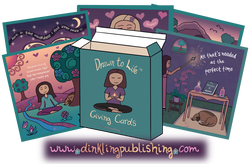 It's Been Several Hours & 15 Days Since Sinead's Death (Still, Nothing Compares 2 Her) Reflecting on Sinead the past two weeks has opened my eyes to what a huge influence she had on me during my formative junior high and high school years. One of the first albums I bought as a tween was The Lion and the Cobra. My friend and I, both misfits with fiery tempers, were so in love with the album we chose not one but two of the songs on the albums to use for our lip synching videos in Theater Arts class - Jackie and Drink Before the War. It was Troy, though, that was the truly epic song on that album and certainly one of my peer's and my first exposures to the imagery of a phoenix rising from the flames. I’m pretty sure shaving my head senior year in high school was at least partly influenced by her, even though by that time I'd moved on to Tori Amos and Fleetwood Mac. At the very least, it represented a solidarity in our shared outrage. It’s not uncommon for women to change their hair after painful events - some just take it further. Having been voted "most intense" in my high school senior year, none of this should be very surprising to me. And yet, it took her passing away for me to see the connections. All these years, despite revisiting her albums from time to time, I never followed her personal life. I just remembered her being a rebel tearing up that picture on SNL to take a stand against unthinkable behavior going on in the Catholic Church. It's easy to see now that she was a profound trailblazer, way ahead of her time, for John Paul II had not yet acknowledged the sexual abuse within the Church. It was only a few years ago I became aware of her mental health issues, which in hindsight makes so much sense for someone with her background, growing up when she did. If a woman today ripped up a picture of someone they saw as representing child rape, there's a good chance they would be applauded - if not for the sentiment, then at least for so vulnerably sharing their own truth. "It’s a crying shame how the world reacted to Sinead at the time. The world never did give her the apology she deserved. What a betrayal she must have felt when she expressed so vulnerable a truth only to be despised. She deserved protection, not persecution," was my first reaction the day after I learned of her death. But after researching her history over the next couple weeks, I realized the SNL incident and the public's reaction were almost insignificant compared to the trauma she experienced as a child. No, it seems that the real betrayal she suffered was at the hands of her severely mentally ill mother who, according to Sinead, not only used to lock her outside in the dark as punishment, but also sexually abused her. It's one thing for a stranger to hurt someone, but one's own mother? THAT, my friends, is about as dark as it gets. Yet surely, it doesn't stop there - it goes back to her mother's mother and father, and their parents, and so on.(footnote1) Now I see Sinead's relationship to her mother, who died in a car accident when she was a teen, woven all throughout her music. She has an album called Universal Mother featuring a song called All Babies for heaven's sake. And just yesterday I read that she felt one of the most healing things she did was forgive her mother. It makes me sad that despite her creative outlet and the forgiveness she found for her mother, her cPTSD and borderline personality disorder seemed to worsen rather than lessen with age. I'm not sure why. There's a million possible reasons, I suppose. Some tragedies take more than a single lifetime to heal. Perhaps the lessons her life embodies and beg to teach us would not ring as loudly if she had had some fairy tale ending in her lifetime. Perhaps that would have minimized the depth of her childhood trauma in a way. So much of the self help movement involves spiritually bypassing tragedies that simply cannot be addressed by positive thoughts alone. All we see of most people is the tip of the iceberg. We really have no idea. If there's one thing this reaffirms for me, besides the power of the mother, is that it's rare for someone with the kind of childhood Sinead had, and her resulting cPTSD and Borderline Personality Disorder, to ever make it into the public eye at all and leave such a powerful mark on the earth. Those that do often die young (think Vincent Van Gogh, Silvia Plath, Princess Diana, Carrie Fischer, Marylin Monroe, Kurt Cobain). [Footnote 2] In this way, it seems her entire life is a victory. Look at what she accomplished - one of her greatest missions was to open discussion about child abuse and mental illness, which she certainly did. She also now has left a legacy on forgiving the mother. I wrote this poem in 2012 after a bad experience with someone who had the worst upbringing of anyone I'd ever known, and I'm now seeing how deep it goes, how this resonates so much with these reflections on Sinead, and her amazingly sweet beautiful eyes. Something changes in you forever Sinead has already risen like the Phoenix from the Flame. Footnotes: 1. It seems like it's always the mother, more than the father, that gets all the rap, maybe because the mother is typically closest to the child, or maybe because she is held up to higher standards. But why a child grows up the way they do, I have found, is tied just as much to the father, if you look closely. Even in cases where the violence doesn't come directly from the dad, it still has a great impact - remember the quote "the best thing a father can do for his children is to love their mother". Either way, it's undeniable how powerful, and in some strange ways underestimated, the role of mother/woman is in this world.) 2. Celebrities cited as having BPD or BPD-like symptoms include Princess Diana, Vincent Van Gogh, Silvia Plath, Ernest Hemingway, Jim Morrison, Marylin Monroe, Jim Carey, Carrie Fischer, to name a few. PS. It boggles the mind even more remembering it was in her hauntingly beautiful song Feel So Different, that Sinead cites the Twelves Steps prayer: God grant me the Serenity to accept the things I cannot change Courage to change the things I can And the Wisdom to know the difference I am not like I was before I thought that nothing would change me I was not listening anymore Still, you continued to affect me I was not thinking anymore Although I said I still was I'd said, "I don't want anymore" Because of bad experience I have not seen freedom before And I did not expect to Don't let me forget now I'm here Help me to help you to behold you The whole time I'd never seen All you had spread before me The whole time I'd never seen All I needed was inside me And now I feel so different. Today's musing is on memes. Not the funny ones that have a cat picture with text that reads "me, when <insert experience that looks funny with cat picture>;" just the simple ones consisting of a quote, sometimes paired with a picture and aimed to share a deep truth or insight. I've been contemplating this online phenomenon for many years with mixed emotions. On the one hand, as an open and impressionable truth seeker, I've been attracted to the ready-served sound-bite wisdom found on social media. If nothing else, they'd wake up my brain to see things in a new way. At the same time, my inner silly philosopher comic couldn't help but parody the prevalence of quotes everywhere. Below are two from 2013 and 2016, which I recently redrew in my new comic style. Needless to say, I had conflicting feelings about memes, struggling to reconcile the two parts of me - one that felt like I was really finding new information in heart felt sharing online, and another that saw, for one, the irony of looking outside myself for answers. So finally, this past month I decided to take a stab at writing down something coherent about memes when, for the umpteenth time, I stumbled on a quote that gave me the knee-jerk response: "this is a perfect example of how a momentary personal truth without context is often just a half-truth, no better and sometimes worse than a lie." It read: Surround yourself with people who talk about their visions, ideas and dreams, not those who talk about other people. You've probably heard some variation of this. The one I was most familiar with was: great mind discuss ideas, good minds discuss events, small minds discuss people. And as an abstract thinker who has spent a lot of time isolated away from human connection, it was easy for me to jump on board. Not only did it sound true, but it meant I fell into the “great” category most of the time. I’ve never been a big talker of people - partly out of a deep respect for privacy, but also due to my natural inclination to focus on ideas and abstractions, quite a novice at intimacy. But recently, as I've been healing some developmental traumas with somatic therapy, I've started admiring those who talk about people because I see in them a prioritization in their hearts towards relationships with others, arguably the most important ingredient for a fulfilling life, and a stark contrast to my own existential pursuit of making sense of things in the abstract with hyper-focus on goals, often at the expense of connection and intimacy. In other words, for someone like me, that quote was potentially bad advice.
Of course this doesn't mean I think gossip-like talking about people is good, which is likely one of the points the quotes above are trying to make. Or that I believe we shouldn't talk about ideas or dreams or surround ourselves with those that do. It's about balance, and depending on which extreme you reside, different kinds of encouragements are required to bring you to equilibrium. You don't give everyone the same medication, why would you give everyone the same advice? So when I stumbled upon the meme above I was actually offended at what a trite and gross oversimplification the post was, as I had recently been learning so much about social intelligence from a friend that talked a lot about people and relationships, something I vitally needed more of in my life. I saw how this meme was a clear demonstration of what so many personal epiphanies and insights become when reduced to a meme or quote floating around social media: without context, they can be quite meaningless, and potentially harmful because we are likely going to just make them mean what we want them to mean, while mistakenly assuming we've found some sort of hard and fast truth. This experience also speaks to a broader issue around social media, specifically how the algorithms, programmed to give you "more of what you want," also result in keeping you in a tunnel vision of thoughts and ideas that reinforce and strengthen your own beliefs, beliefs that might actually benefit from being challenged and shaken up from time to time. Of course, this is an age old phenomenon that's existed long before social media or even the internet. Our tendency to blind ourselves to contradicting evidence, to hang around likeminded folks that support our beliefs, to attract more of what we focus on, is not new. The problem with social media is that it exaggerates this already existing dynamic. It's the law of attraction on steroids with unintended side effects that, without awareness, can polarize people and keep them in delusion. It's not that being attracted to likeminded ideas and people is bad, or that social media, in and of itself, is bad (well, it's a mixed bag given the people behind the companies running it). It's just that when we aren't aware of the larger landscape and machinations at work in the background, we can jump to conclusions that may not be grounded in reality, or in our best interest in terms of growth. Nor do I think enjoying quotes that resonate online is a bad thing - I know I have learned a lot. But it's been at a cost when the motivation behind the searching was an insatiable emptiness; when I would walk away with the impression of just having learned new wisdom, or connected with others, when in reality I just spent hours glued to a curtailed feed aimed to keep me there and make money off my attention. How much more embodied wisdom I might have if I just spend time in stillness, present to my body and that quiet voice of intuition, rather than consuming the truths and thoughts of others. How much more real connection I would have if I let myself open up to people in real life. Again, it's a balance; the actions differ depending on where you are. The take away from this isn't a profound new truth, but a call to re-empower our own inner authority and wisdom, a reminder that every wise sounding quote was simply a truth for a particular person at a particular moment in time in a particular context, and that no matter how much something resonates, it's still just a truth in the moment, not necessarily some objective reality about the world and how it works. Truth is relative and always changing, and giving any one thing too much meaning or importance may be just another distraction away from the truth in THIS totally new moment. Ironically enough, this email is another example of this - it's my truth at this moment in time as I go through a long-needed transition of being more mindful about what's going on in my own body and less outwardly seeking some truth I think will fix me. It's an expression of my own need to spend more time connecting with others, and less in my own mind's worlds of ideas and abstractions. You may be on a different part of the spectrum, so if this doesn't resonate, trust that. Or maybe it will inspire new thoughts for you on the concept of truth, or help to remember that we don't always have to polarize in one direction or another in order to find it. Maybe it's just always here, in this new moment. So here's to a life filled with "ANDs." To conversations about ideas AND people AND events as the situation calls for. Here's to being more present in our bodies to find our own truth, one that's evolving moment by moment. Here's to accessing the present where the truth is always evolving and shifting, moment by moment by moment.
|
Author:Amanda I. Greene This is where I share thoughtful, and sometimes unpolished, musings in the form of philosophical explorations, inspirations, poems, and artwork.
Archives
March 2025
Categories
All
|

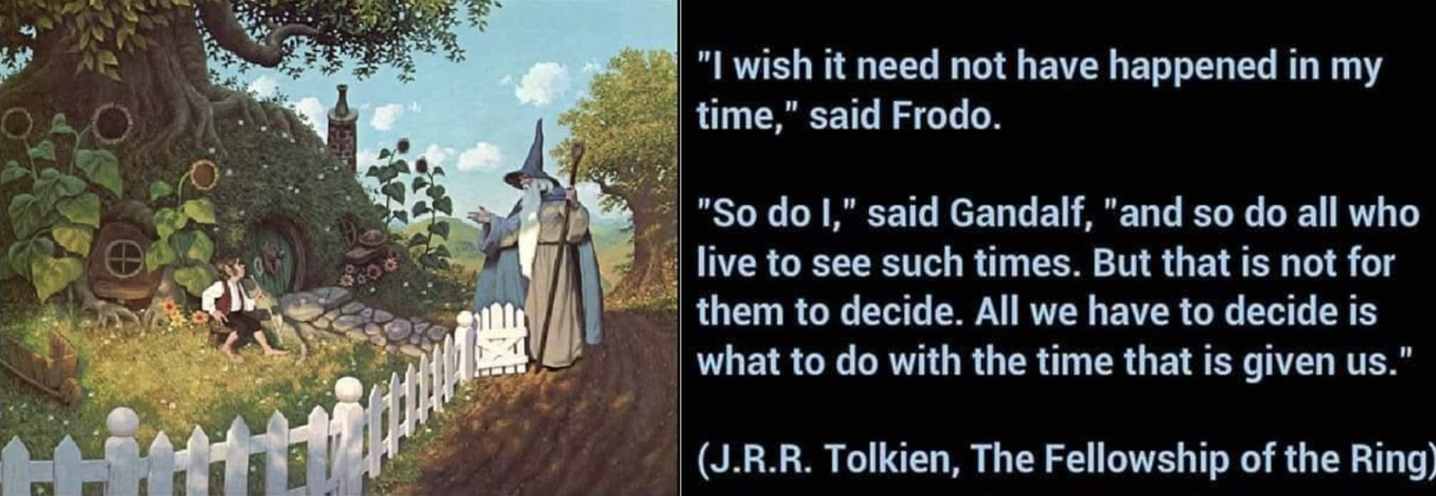
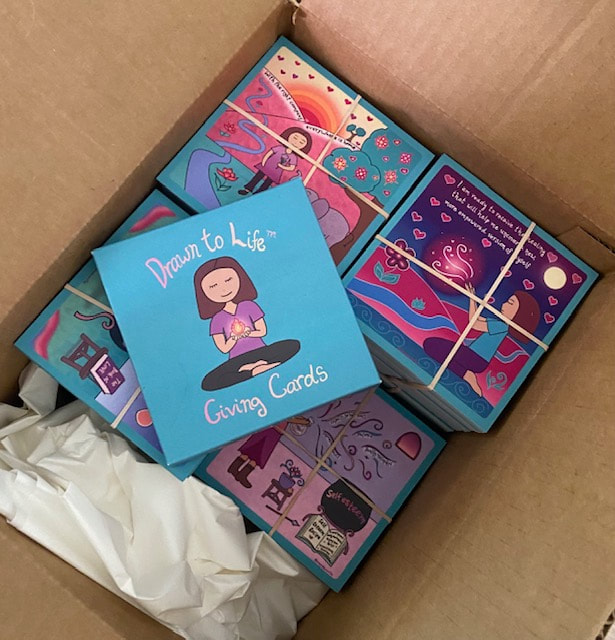

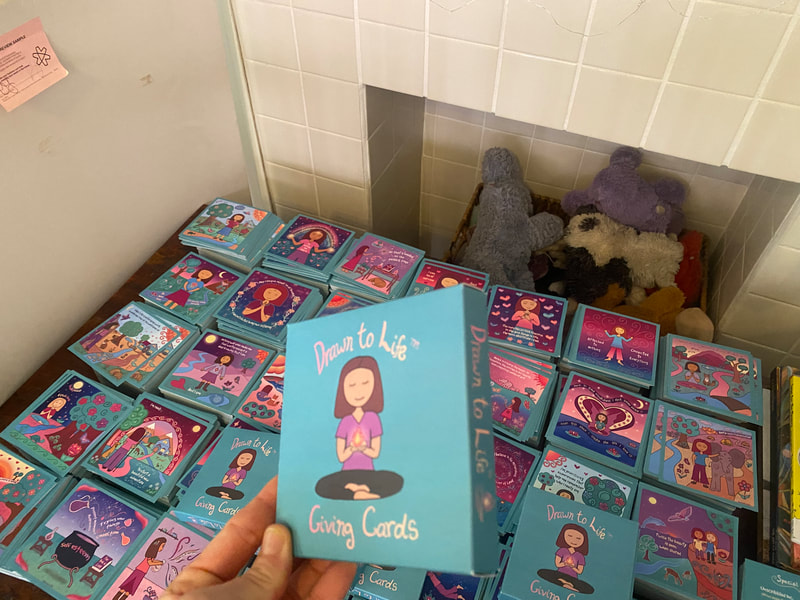
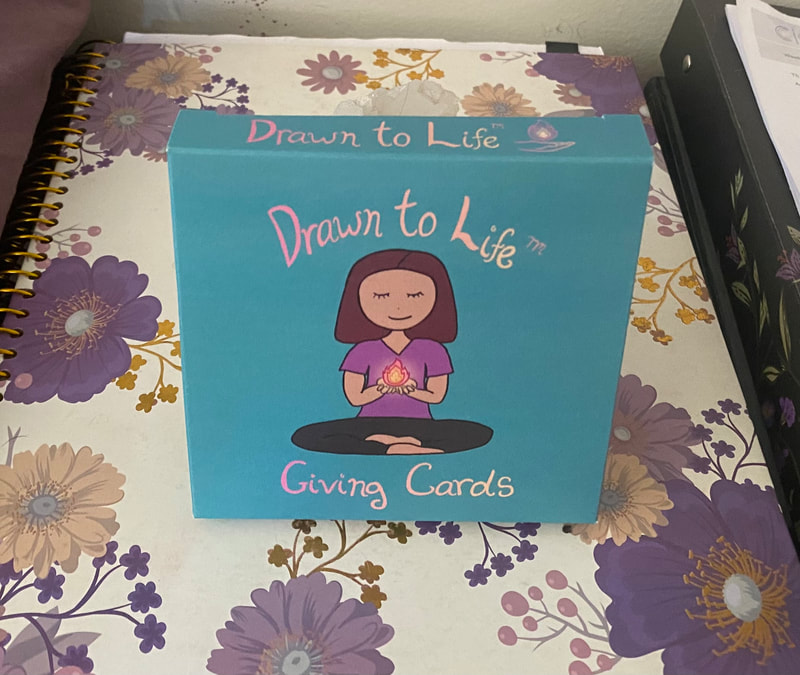
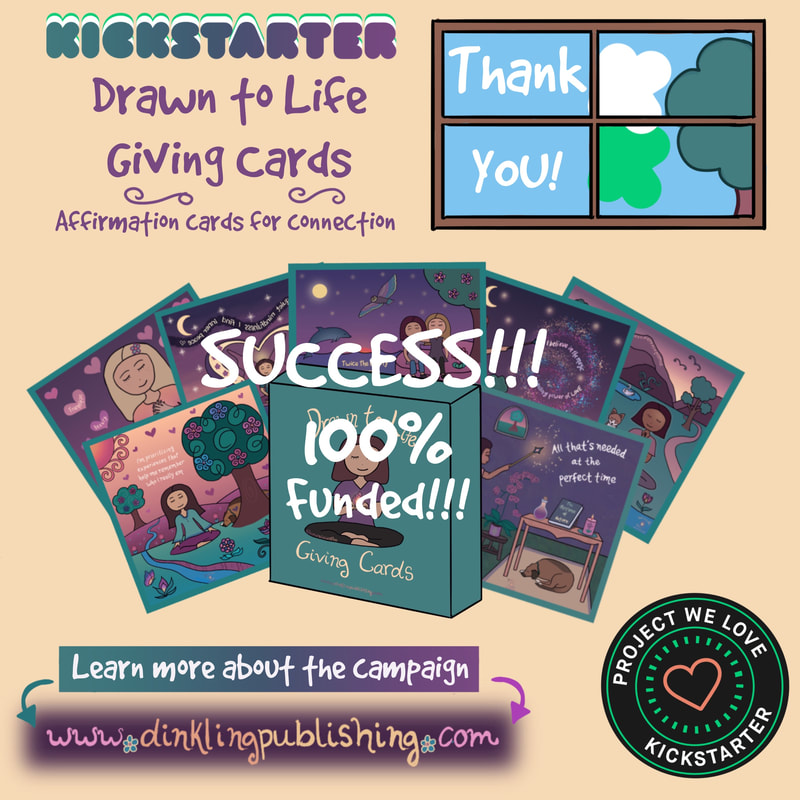
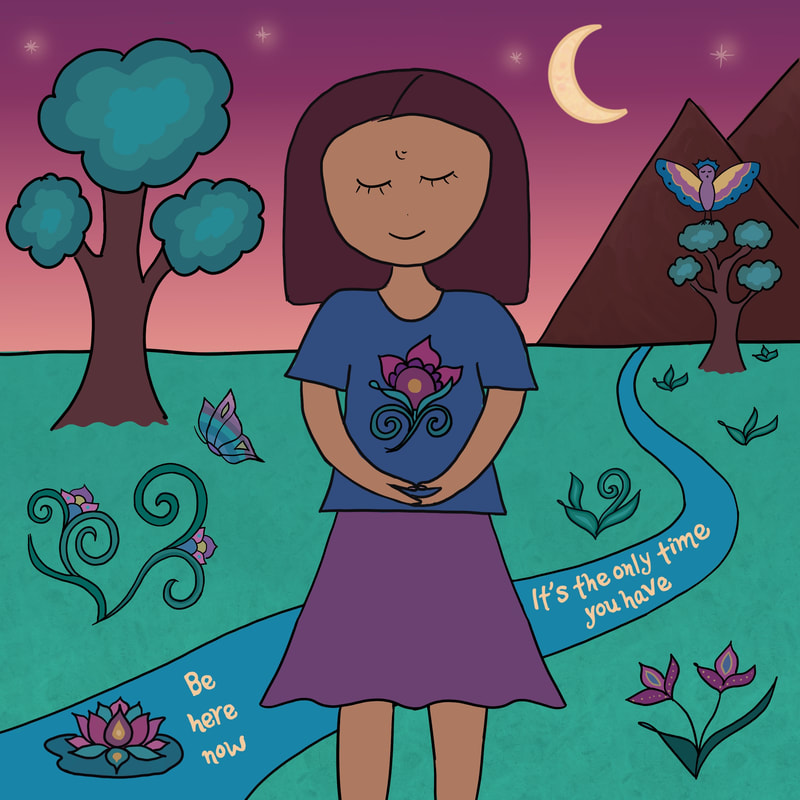
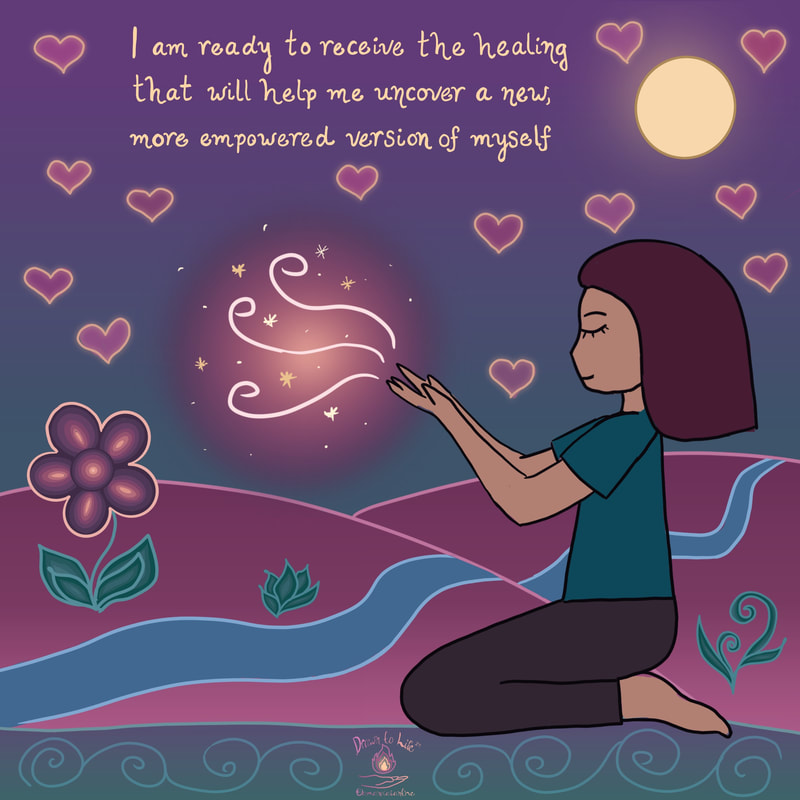
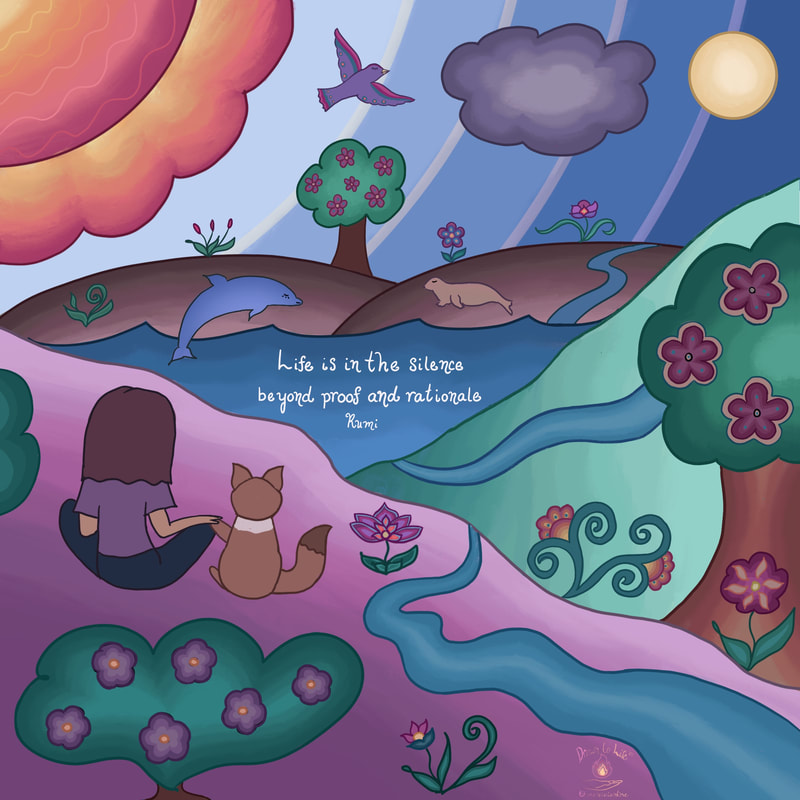
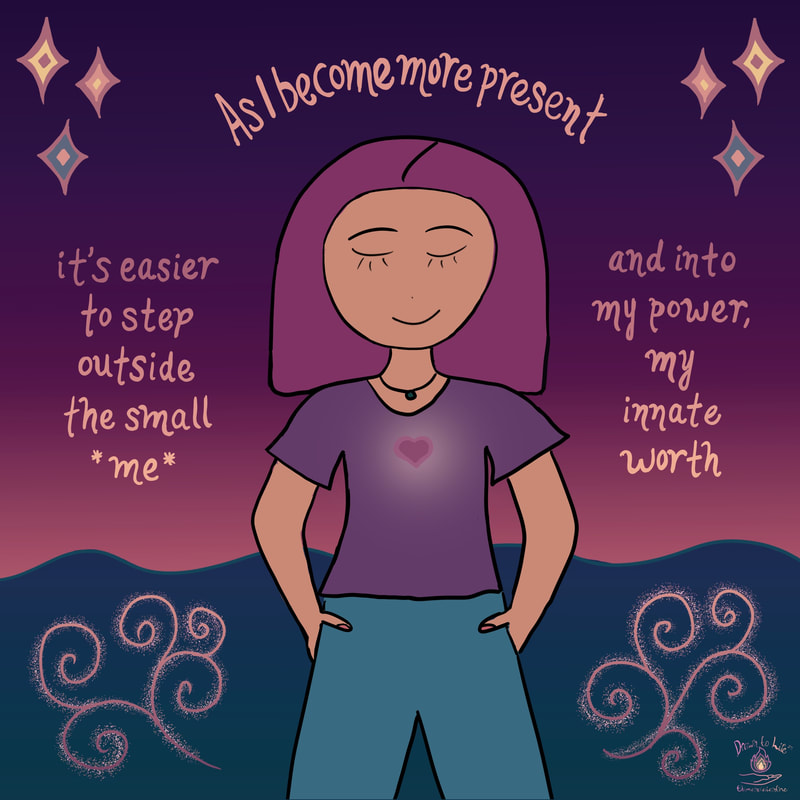
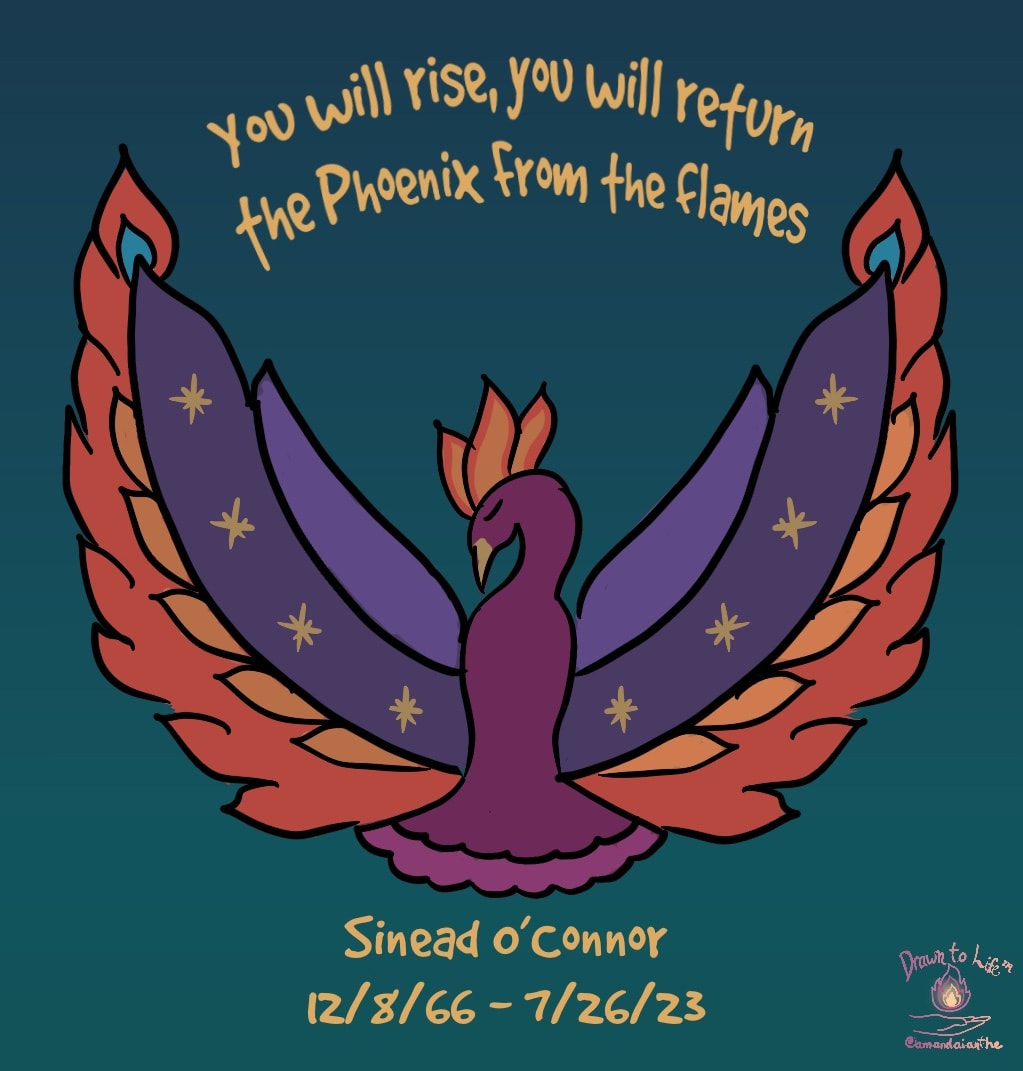
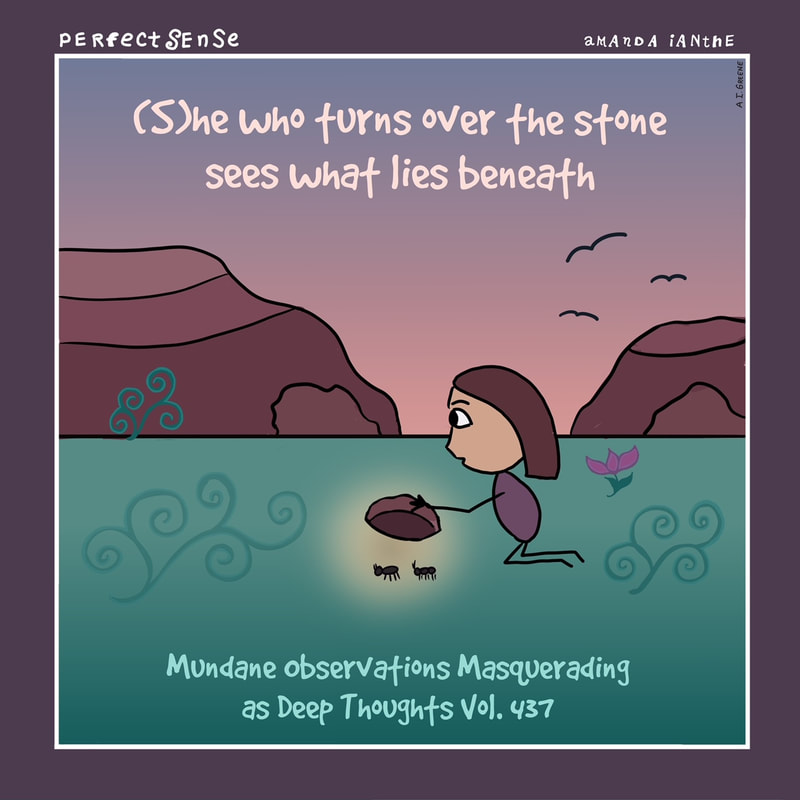
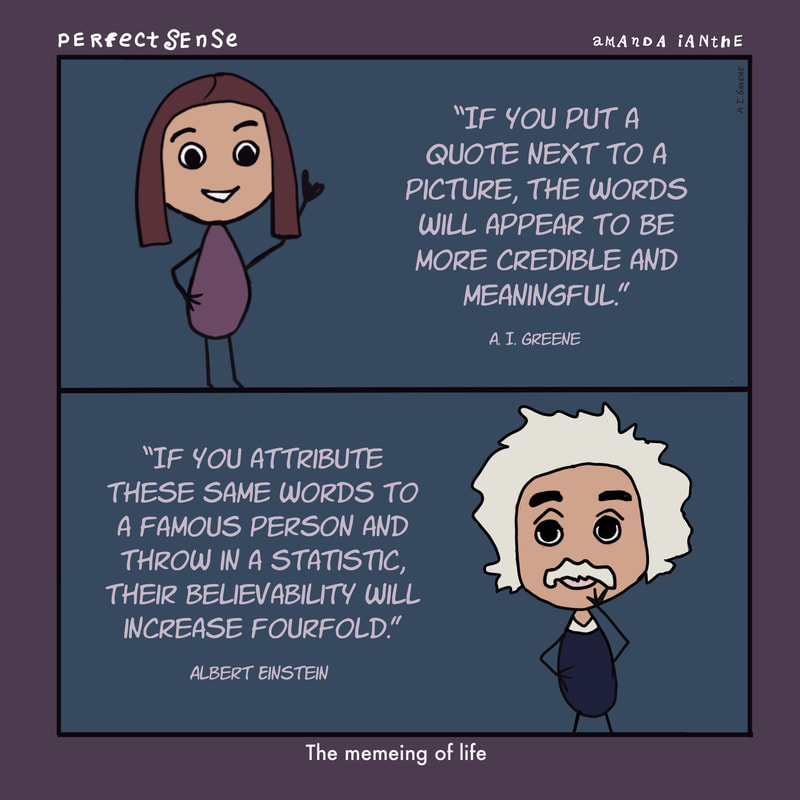
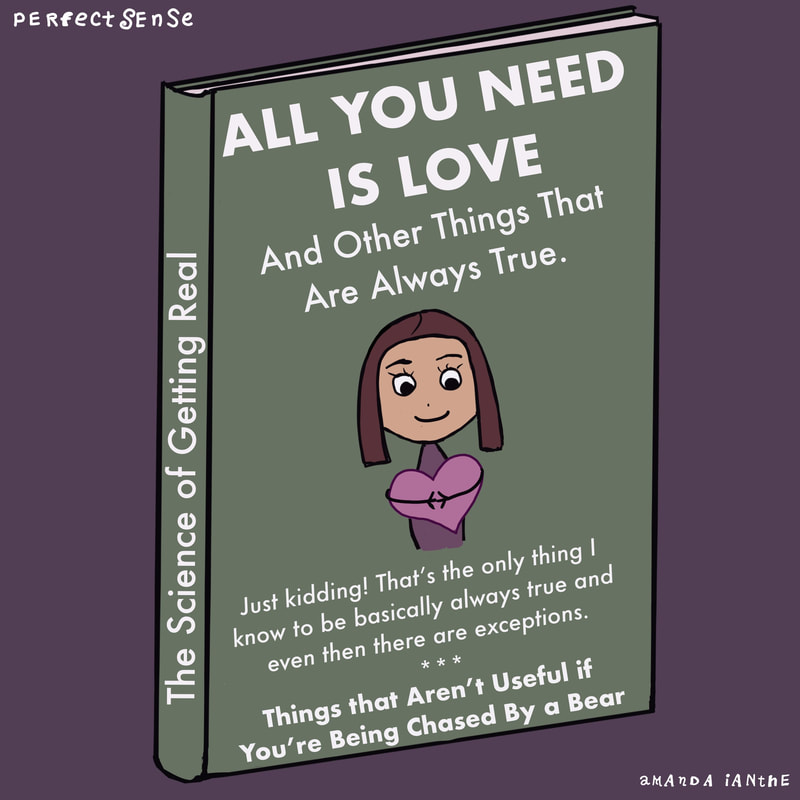
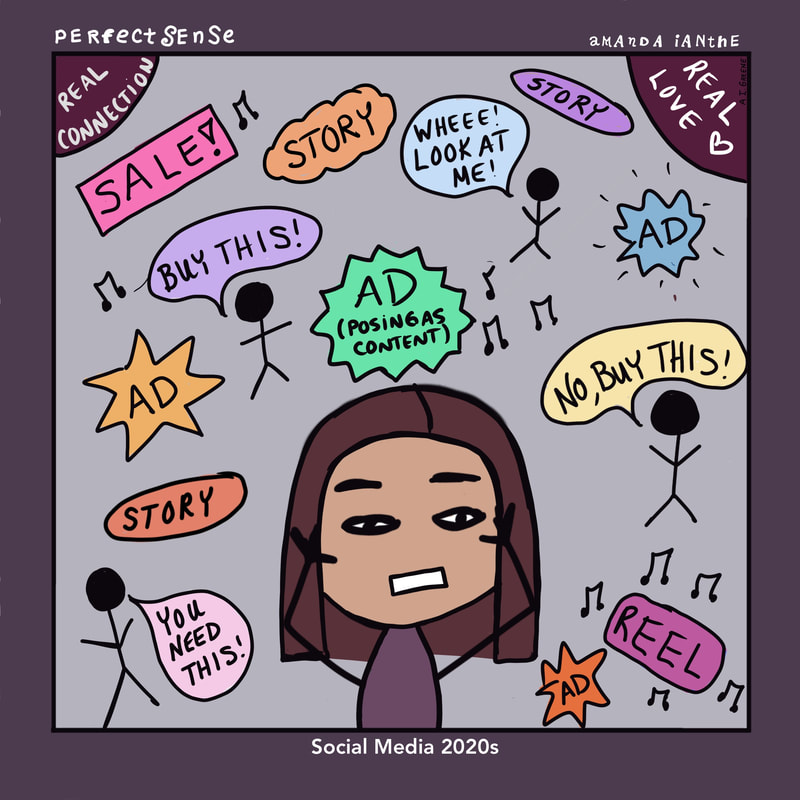
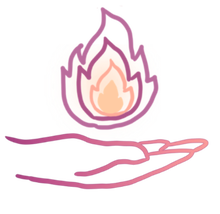
 RSS Feed
RSS Feed